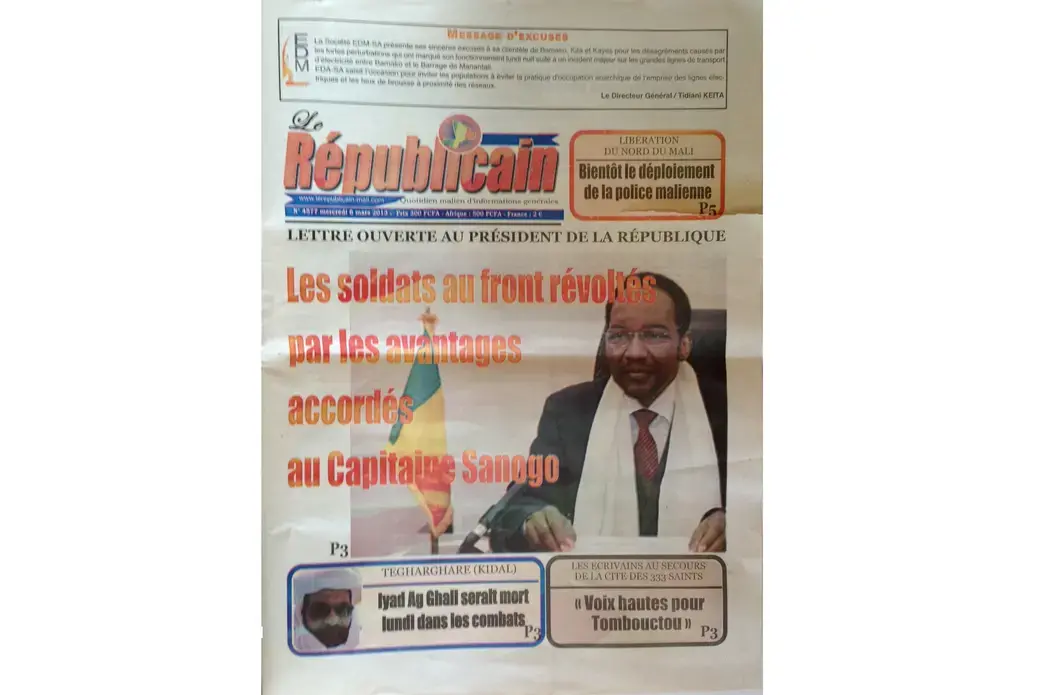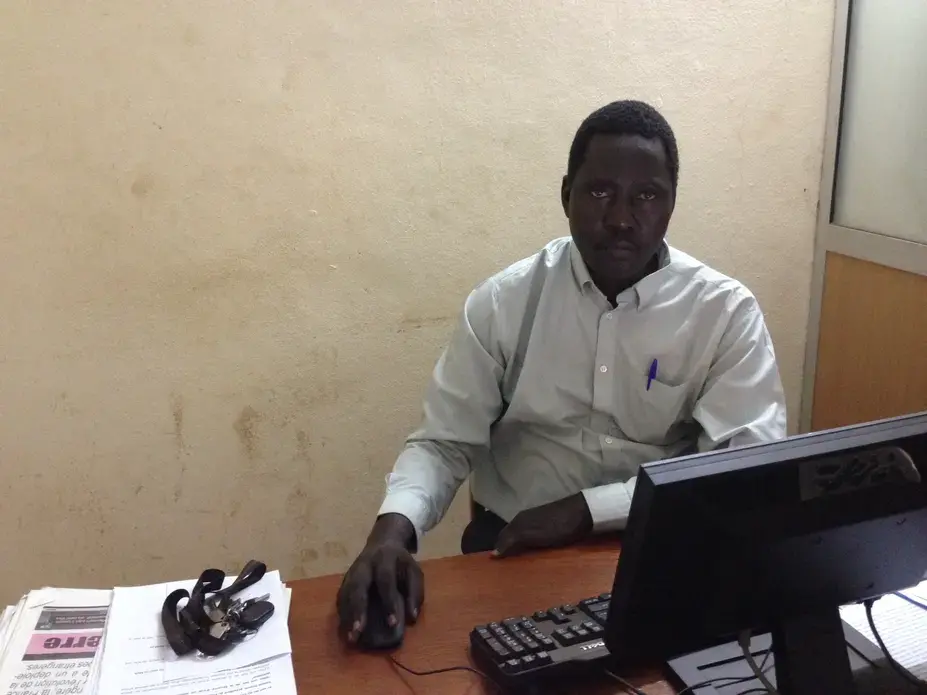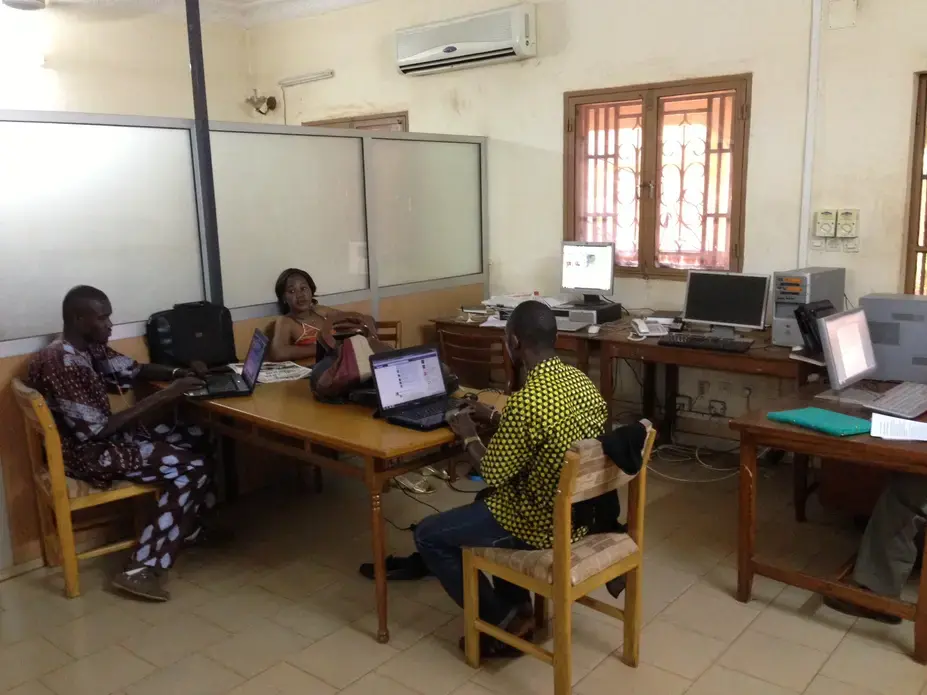Mali's interim civilian president, Dioncounda Traore, meets foreign dignitaries and leads cabinet meetings, appearing for all intents and purposes like a normal head of state. Here in Bamako, Mali's capital, the soldiers who once manned checkpoints throughout this traffic-choked city have gone back to their barracks. Elections have been scheduled for July, and political parties have begun quietly discussing which candidates to endorse.
On most days it's easy to forget that this is still a country under military rule, but the indictment of a prominent journalist this week offered a vivid reminder that the Army officers who ousted Mali's elected government last March retain enormous power—and that they aren't afraid to use it.
The journalist, Boukary Daou, is the publication director of Le Republicain, a small but feisty daily newspaper. Plainclothes security agents arrested him at the paper's shabby offices on March 6, the day Le Republicain published a scathing open letter from an Army officer criticizing the salary and benefits accorded to Capt. Amadou Sanogo, the leader of the military junta which quietly controls Mali. The letter said that Sanogo was being paid more than $8,000 a month, an astonishing sum for this impoverished country.
Daou hasn't been seen or heard from since his arrest, and the announcement of the indictment marked the government's first official comments about his future. Daou, prosecutors said, was being charged with trying to incite civil unrest and knowingly publishing false news.
He's scheduled to make his first court appearance on April 16, but its unclear when the trial will actually begin or how long it will last. It's also unclear how much jail time Daou faces if convicted. Even if he's ultimately acquitted, however, the journalist will almost certainly spend several more months in prison.
I heard about Daou's case shortly after I arrived in Mali for a three-week reporting trip. Two local journalists told me that they'd received the same open letter criticizing Sanogo, but had been afraid to publish it. Daou, one told me, was "either brave or stupid, and possibly both."
The same journalist e-mailed me while I was in northern Mali reporting on the fighting there to point out how unusual—and scary—Daou's continued detention was for local journalists. Other reporters had been arrested since the coup, but they'd all been released within a day or two of being taken. Daou's arrest seemed designed to remind Mali's reporters that there were still lines they shouldn't cross.
I drove to Le Republicain's offices shortly after returning to Bamako on a Tuesday morning. The newspaper has a staff of 15 reporters and a daily circulation of roughly 2,500. It operates out of a two-story villa ringed by red terra cotta walls and shaded by a small copse of trees. When I arrived, Daou's number two, Assane Kone, was still visibly shaken by the news of his boss's upcoming trial.
"I never thought they would go this far," he told me. "I've never heard of a journalist being charged with this crime, and I'm scared for Boukary."
Daou's arrest was obviously designed to intimidate other journalists, and it seemed to be having the desired effect, even within Le Republicain. Kone repeatedly told me that the decision to publish the letter had been Daou's alone, and he declined to tell me whether he agreed with it.
"I wasn't in the office when that decision was made," he said. "I never got to hear his thinking about whether it should be published, so I didn't weigh in one way or the other."
I sympathized with Kone, who was quite reasonably trying to tread carefully around an explosive issue that could bring further damage to his paper. Near the end of our conversation, he finally gave me a direct answer.
"Was it a mistake to publish the letter?" I asked.
"Of course," he said flatly. "Given what's happened to him we can obviously say it was a mistake."
With that, he stood up and politely escorted me to the door. It was 3:45, and the deadline for the next day's paper was rapidly approaching. Daou's arrest, appropriately, will be on the front page.











